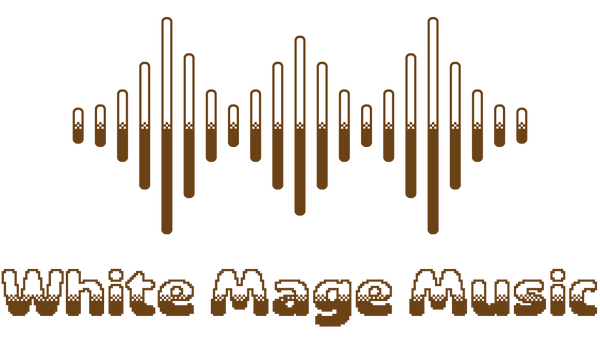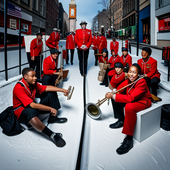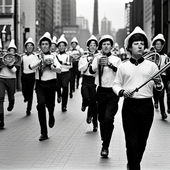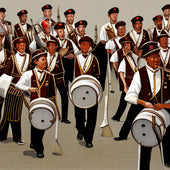When it comes to marching band rehearsals, the biggest shortcoming I've seen time and again is band directors "letting loose" of the constraints of full-time teacher life and just "winging it" for marching band practice.
This couldn't be further from the "best practices" approach.
Yes, your marching band is an extracurricular and not a traditional classroom environment. But there is a reason that nearly every educational administrative organization has mandated teachers use some lesson planning format: IT WORKS. Sure, your marching band does everything possible to contradict the usual classroom teaching environment, but the idea of planning a lesson out still applies.
When planning a marching band rehearsal, I think of the "to-do" list and what it would take to accomplish that. I prioritize everything on that list - weighing the difference between "How much time will I need?" and "What should be done soonest?" After determining the first priority, I break down the time available that day and then plug in the things I need to get done.
By planning two or three rehearsals ahead, you can save yourself significant stress by showing yourself that specific priorities are GOING to get handled at some point in the week so you can relax and put your efforts into other details.
When breaking down a rehearsal block, think of the basics your students will need.
Every rehearsal should begin with "warm-ups." Whether or not the students have played their instruments or moved their bodies earlier in the day, this step is as much about the "warm-up" as it is about the mental preparation for the rehearsal process. If you work marching in class during the day, the after-school music warm-up is more about getting the students' minds into creating great tone and listening to their ensemble as it is warming up their chops for performance.
After the warm-up, you get into the actual productivity part of the rehearsal. The most significant error I see in bands is the director's need to "hit every part of the show daily." If you are rehearsing multiple times a week, your students will be fine if you skip your ballad on Tuesday, knowing you plan to touch it on Thursday.
After planning a week of rehearsals, take solace in knowing that you've addressed the priorities for the week and everything you need to release will be addressed at some point.
Once I've calmed down to know that all of my top priorities will be addressed throughout the week, I stop to think about how much time everything will take. My daily lesson plans are literally written in minute-by-minute chunks. This is not to say that my sheet of paper says "4:00 - 4:01 - 4:02," instead, I will list each detail to address along with how much time I anticipate that detail taking. I'll try to add 5 minutes to that schedule. Either I end up with the padding I need, or I'll find an extra 15-20 minutes at the end of the day where I can start to touch on another topic.
Ultimately, my lesson plan will include 3 to 5 topics, each allocating 15 or 20 minutes of rehearsal time. From there, experience has taught me how to complete the goals in the time allowed. At the end of a rehearsal, the band will perform a complete run-through and demonstrate the day's objectives.






























